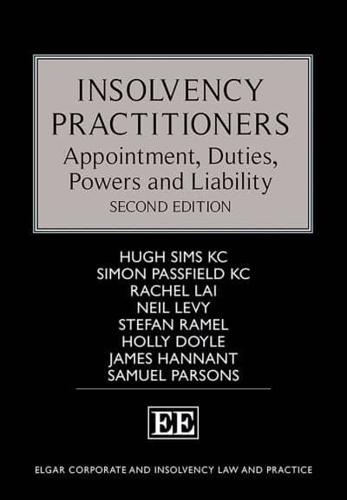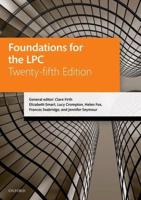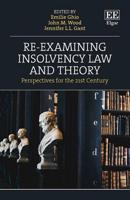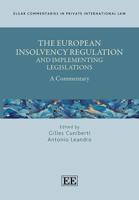Publisher's Synopsis
This thoroughly revised second edition provides a clear overview of the functions and liabilities of insolvency practitioners (IPs). It considers the circumstances in which IPs are appointed and their duties and powers, before offering a detailed investigation into their potential professional liabilities, as well as in-depth guidance to practitioners and advisers as to how claims might be framed and defended.
Key Features:
- Examination of both reported case law and unreported cases from the authors' own experiences to provide unparalleled insight
- Discussion of tendentious matters such as aspects of remuneration and the latitude given to IPs in exercising their commercial judgement
- Analysis of recent legislative developments including the Administration (Restrictions on Disposal etc. to Connected Persons) Regulations 2021 regarding 'pre-packs'
- Consideration of "immunity" for office-holders on directions applications following the important decision of the Court of Appeal in Denaxe v Cooper (2023)
- Coverage of important Supreme Court cases such as Brake v The Chedington Court Estate Ltd (2023) on the question of standing to challenge trustees in bankruptcy and R (on the application of Palmer) v Northern Derbyshire Magistrates' Court (2023) on whether administrators and liquidators are 'officers' of a company for all purposes
- Consideration of significant first instance decisions such as Re One Blackfriars Ltd (2021) on IP liabilities, Centenary 6 Ltd v TLT LLP (2023) on claims against administrators and liquidators, and Carraway Guildford (Nominee A) Ltd v Regis UK Ltd (2021) on the professional liability of a nominee in a CVA
This book is a crucial resource for insolvency practitioners and lawyers in insolvency practice, enabling them to effectively assist and advise IPs from appointment to discharge. It is also essential reading for postgraduate students and academics in corporate and insolvency law.









